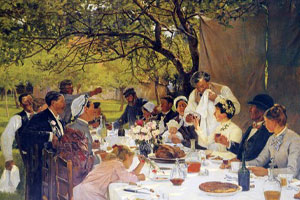
An article in The New York Times talks about courtship. The author, Michal Leibowitz, writes wistfully about arranged marriages. Perhaps, she muses, it is time for them to return.
The article “Dating Is Broken. Going Retro Could Fix It” is not particularly uplifting. It carries an amoral and pseudo-practical tone in which traditional practices are presented merely as an alternative to current patterns. It seems to say, “If you don’t like that, try this. If it works for you, it’s all good.”
Is Traditional Courtship the Answer?
No one on the left is heralding a return to traditional morality and courtship. What they are saying is that the alternatives are not working. The promises of the sexual revolution of the sixties failed to deliver. As a result, many young people are suffering consequences that can be lifelong.
The New York Times article posits that some part of the answer to the present difficulties lies in restoring traditional patterns of spouse selection. In most societies, the choice of a marriage partner was less individual until the early twentieth century. The Church, community standards, families and parents were far more involved.
Before the invention of the automobile, courtship primarily consisted of visits by the young man to the young lady’s home and meetings at community events. There was close parental and community supervision and direction in either case.
Courtship in the Past
Of course, the courtship processes of the past served to integrate the two parties into families and society. The would-be couple would meet in the homes of parents and siblings, which ensured that the two would fit as members of the respective families. Mismatches could thus be avoided, that might later lead to divorce.
The young couple might also meet at Church, at some community festivity, or with a group of friends. These settings would also give the young man and young woman a chance to integrate into social structures that would support them in later life. It would allow them to find their places in society or see incompatibilities that might not appear in more individual settings.
Help Remove Jesus Bath Mat on Amazon
Within specific ethnic communities, there also might be the intervention of a matchmaker. The Times writer speaks much of these people—usually older women paid by parents to find suitable spouses for their daughters. These people provide guidance and experience to find the right person.
Are Feminists Appealing to Tradition?
Traditionalists might read the article with incredulity. Indeed, The New York Times is a promoter—perhaps the leading promoter—of the far-left philosophy and the continuing sexual revolution. It openly advocates the “woke” culture infesting American and European societies.
However, this opinion piece advocates—or at least seriously discusses—a system of spouse selection that had been largely discarded a century ago. For decades, many feminists have argued that marriage itself is repressive. Now, this young feminist senses the failure of today’s shallow relationships and looks to the past. Current-day feminists are questioning the sexual revolution that their mothers and grandmothers did so much to incite.
Liberation or Degradation?
Part of the shift is the failure of free love to “liberate” women. Late-twentieth-century feminism taught that sexual activity without commitment was a step forward for women. Contraception and procured abortion were mechanisms that could allow women to be openly promiscuous without taking the chance that children might derail their careers or dreams of “fulfillment.”
Satanic Christ Porn-blasphemy at Walmart — Sign Petition
Thus, a generation of women took to the streets and halls of Congress to demand “reproductive rights.” The Supreme Court’s decisions in Griswold v. Connecticut and Roe v. Wade set an official seal of approval on the ideals of the sexual revolution that set women free from old practices like courtship.
It did not take long for cracks to develop in the new “free love” paradigm. Almost instantly, the number of those with sexually transmitted diseases soared. Relationships fell apart as divorce rates spiraled. In the eighties, many women seeking careers regretted their decision to forego children. More often than not, women suffered the most from their liberation.
Today, many feminists have major reservations about the philosophical premises of modern feminists that can be quite shocking. Ms. Leibowitz refers to book-length treatments of the matter. Perhaps the most famous is Camille Paglia, whose 1990 book Sexual Personae openly questions the tactics of the feminist movement. Louise Perry’s new book, The Case Against the Sexual Revolution, is just as controversial.
Neither book can be called traditional. Both authors remain committed feminists. Neither appears to understand that the “freedoms” they trumpet lead to despair. Their arguments, like those in the New York Times article, are utilitarian—don’t do this because it doesn’t work.
Strong Families Build Healthy Societies
The modern world ridicules antique practices like arranged or guided courtship. However, they had positive results. Such arrangements ensured that the new husband and wife would have common backgrounds, expectations and goals. They save the time of those involved since the parties clearly state their intentions. The young man’s ability to support his new wife was well-established. This scrutiny prevented some of the dangers and suffering that defeat many modern marriages.
How Panera’s Socialist Bread Ruined Company
While not all marriages were successful, the vast majority of children lived in stable homes.
It is time to restore a sense of importance and security to the courtship process. When even the left is saying this, people should take notice. The old standards could be part of this restoration. Children need rules and parents to guide them to make good choices. Selecting a spouse is one of life’s most important decisions. Modern society may worship at the shrines of individualism and spontaneity, but those are not paths to building solid families.


